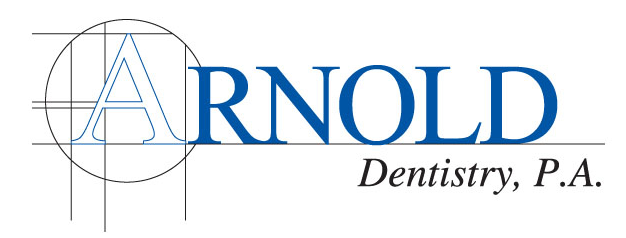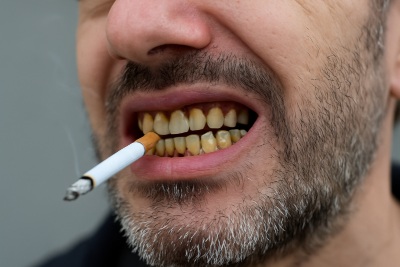The Impact of Smoking and Tobacco Use on Oral Health
Wed, Jun 4th, 2025
When most people think of the consequences of smoking, they often picture damaged lungs or heart disease. However, one of the most immediate and visible areas affected by tobacco use is the mouth. The effects go far beyond stained teeth — smoking and other tobacco products can wreak havoc on your oral health in serious and sometimes irreversible ways.
At Arnold Dentistry, we believe that understanding the risks is the first step toward making healthier choices. In this post, we’ll explore how tobacco use impacts your teeth, gums, and overall oral health, and what you can do if you’re trying to quit.
1. Stained Teeth and Bad Breath
Tobacco products, especially cigarettes, contain tar and nicotine — two ingredients notorious for staining teeth. Over time, these substances build up, leaving teeth yellowed or even brown. Unlike minor surface stains from coffee or wine, tobacco stains can be deeply embedded and difficult to remove without professional whitening treatments.
Tobacco also causes persistent bad breath (halitosis). It dries out the mouth, promotes bacterial overgrowth, and leaves behind a strong odor that isn’t easily masked with mints or mouthwash.
2. Increased Risk of Gum Disease
One of the most damaging effects of smoking is its link to periodontal disease — a chronic infection of the gums that can lead to tooth loss. Smokers are up to six times more likely to develop gum disease than non-smokers.
Why? Smoking weakens your immune system, making it harder for your body to fight off the bacteria that cause gum infections. It also reduces blood flow to the gums, slowing healing and masking early signs of inflammation — so by the time the disease is diagnosed, it may be quite advanced.
Common signs of gum disease include:
- Swollen, tender, or bleeding gums
- Receding gums or teeth appearing longer
- Persistent bad taste in the mouth
- Loose teeth or changes in bite
3. Tooth Loss and Bone Deterioration
As gum disease progresses, it damages the tissues and bone that support your teeth. Without intervention, this can lead to tooth mobility and eventual tooth loss. In fact, tobacco users are twice as likely to lose their teeth compared to non-smokers.
Even after tooth loss, smoking complicates treatment options. For example, dental implants may not be a viable solution because smoking interferes with bone integration and healing, increasing the risk of implant failure.
4. Oral Cancer Risk
Perhaps the most serious oral health risk associated with smoking is cancer. Tobacco use (including cigarettes, cigars, chewing tobacco, and vaping) is a major risk factor for oral cancers, including cancers of the:
- Lips
- Tongue
- Cheek lining
- Floor and roof of the mouth
- Throat and esophagus
The symptoms can be subtle in the early stages, such as a persistent sore, white or red patch, or a lump in the mouth. That’s why routine dental exams are critical — your dentist is often the first line of defense in spotting suspicious changes.
5. Delayed Healing and Surgical Complications
Tobacco slows down the body’s natural healing process. This becomes especially concerning after dental procedures such as:
- Tooth extractions
- Root canals
- Gum surgeries
- Implant placements
Smokers are more likely to experience post-operative complications, including infections and dry socket. Delayed healing can also result in poor outcomes and longer recovery times.
6. The Vaping Myth: Is It Any Safer?
Many people switch from smoking to vaping, thinking it’s a healthier alternative. While e-cigarettes eliminate tar and some carcinogens, they still contain nicotine and other harmful substances that affect oral health. Studies show vaping can lead to:
- Dry mouth
- Gum inflammation
- Increased risk of cavities
- Damage to the soft tissues in the mouth
It’s not a safe solution — especially for your smile.
7. How Quitting Tobacco Can Improve Oral Health
The good news? It’s never too late to quit, and the benefits start almost immediately:
- Gum health begins to improve within weeks
- Stains may fade, especially with a professional cleaning or whitening
- Risk of oral cancer decreases over time
- Healing improves, making future dental treatments more successful
- Breath becomes fresher and your overall confidence often increases
Many patients are surprised to see how quickly their mouth feels cleaner and healthier after quitting tobacco. It’s one of the best things you can do for your smile — and your overall well-being.
8. Resources for Quitting
At Arnold Dentistry, we’re here to support you — not judge you. If you’re considering quitting, talk to us during your next visit. We can provide encouragement and refer you to helpful resources, such as:
- Florida’s Tobacco Free Quitline (1-877-U-CAN-NOW)
- Smokefree.gov
- Your primary care doctor or a smoking cessation program
We can also work with you to create a personalized plan to address any damage and restore your smile — whether that means whitening, treating gum disease, or replacing missing teeth.
Your mouth is the gateway to your health — and tobacco use can affect more than just your teeth. From gum disease and tooth loss to oral cancer, the risks are serious, but they’re also preventable. Whether you’re thinking about quitting or simply want to take better care of your oral health, we’re here to help you every step of the way.
Ready for a fresh start? Call Arnold Dentistry today to schedule your appointment. Your smile is worth it.






